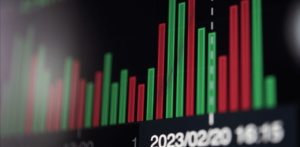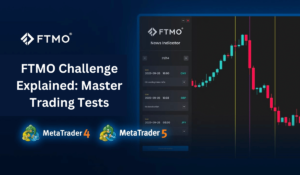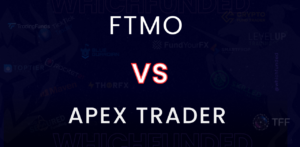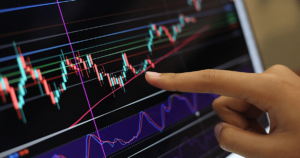Introduction
In the realm of financial markets, the comparison between forex trading and gambling is often raised due to their inherent risks and uncertainties. While superficially they may appear similar, it is crucial to recognize that forex trading and gambling are fundamentally distinct activities with varying characteristics, approaches, and outcomes. This article aims to delve deeper into the topic, providing a comprehensive analysis of the differences and similarities between forex trading and gambling.
Forex Trading and Gambling: Are They the Same?
1.1 Skill vs. Luck: The Differentiating Factor
Forex trading and gambling diverge significantly in terms of the role played by skill and luck. While gambling relies primarily on chance, forex trading involves a combination of skill, knowledge, and strategic decision-making. Successful forex traders develop expertise in market analysis, risk management, and understanding economic factors that impact currency movements.
1.2 Professionalism and Profitability
The existence of professional forex traders who consistently generate profits highlights the distinction between forex trading and gambling. Unlike gambling, where luck alone determines outcomes, professional forex traders employ disciplined strategies and risk management techniques to increase their chances of profitability.
1.3 Forex Trading as a Skill-Based Endeavor
Forex trading is akin to a skill-based endeavor, similar to professions like poker playing. Both forex traders and professional poker players acknowledge that absolute certainty in predicting outcomes is unattainable. However, they rely on their expertise, statistical analysis, and risk/reward assessment to tilt the odds in their favor and achieve long-term profitability.
1.4 The Comparison to Poker
Poker shares similarities with forex trading in terms of combining skill and chance. Professional poker players understand the importance of strategic decision-making, reading opponents, and managing risks. Similarly, successful forex traders rely on comprehensive market analysis, technical indicators, and risk management to navigate the volatility of currency markets.
Reasons Why Forex Trading is Not Gambling
2.1 Market Analysis: A Strategic Approach
Forex traders engage in meticulous market analysis, studying historical data, and identifying recurring trends and patterns. By employing technical and fundamental analysis, traders aim to make informed predictions about future currency movements, thereby distinguishing forex trading from the random nature of gambling.
2.2 Risk Management: Controlling the Variables
Unlike gambling, where risk is often fixed and determined by the house, forex traders have the ability to manage and adjust risk according to market conditions. Through position sizing, stop-loss orders, and other risk management techniques, traders can limit potential losses and protect their capital.
2.3 Regulation: Oversight and Accountability
Forex trading is subject to regulatory oversight by independent financial institutions, ensuring transparency, fairness, and investor protection. In contrast, the gambling industry is primarily regulated by state authorities, with varying degrees of oversight. The regulatory framework surrounding forex trading adds an element of legitimacy and accountability that distinguishes it from gambling.
2.4 Skill Expression: Profiting in the Long Term
Forex trading rewards traders who consistently apply their skills, knowledge, and experience to make informed decisions. Unlike gambling, where outcomes rely solely on luck, successful forex traders can generate profits over the long term by honing their skills, adapting to market conditions, and employing effective risk management strategies.
2.5 Social Aspect: Speculation vs. Emotional Appeal
Gambling is often driven by the excitement and emotional appeal of taking risks and placing bets. In contrast, forex trading is primarily focused on speculation and analysis of market trends. Forex traders rely on a community of fellow traders, financial news, and economic indicators to inform their decisions, emphasizing the social and analytical aspects of the activity.
2.6 Addiction: The Engaging Factor
Gambling is associated with a higher risk of addiction due to its immediate and potentially addictive nature. Forex trading, on the other hand, is characterized by a more methodical and calculated approach, reducing the likelihood of impulsive behavior and addictive tendencies. Traders approach forex trading with a long-term perspective, emphasizing discipline and risk management.
Factors Contributing to the Perception of Forex Trading as Gambling
3.1 Uncertainty and the Role of Luck
The inherent uncertainty and volatility of financial markets can lead to a perception of forex trading as a form of gambling. The unpredictable nature of currency movements, especially in short timeframes, may give the impression that luck plays a significant role in trading outcomes.
3.2 Risk of Losing Money
Both forex trading and gambling involve a certain level of risk, including the potential for financial loss. The possibility of losing money in forex trading can lead to comparisons with gambling, where the risk of losing bets is inherent. However, risk management techniques and strategic decision-making in forex trading aim to mitigate these risks and improve overall profitability.
3.3 Psychological Factors: Emotion and Impulse
Psychological factors such as emotions, impulsivity, and the desire for instant gratification can influence both forex trading and gambling. Traders need to develop emotional discipline and avoid making impulsive decisions based on short-term market fluctuations. Managing emotions and maintaining a rational approach are crucial in distinguishing forex trading from gambling.
3.4 Market Makers and the House Effect
The presence of market makers in forex trading can draw parallels to the house effect in gambling. Market makers act as intermediaries, providing liquidity and facilitating trades. While this similarity exists, the transparency and regulatory oversight in forex trading ensure that market makers operate within established guidelines, minimizing the negative impact on traders.
3.5 Similar Strategies: Spread Betting and Binary Options
Certain trading strategies, such as spread betting and binary options, bear resemblances to gambling due to their high-risk nature and potential for quick gains or losses. However, it is essential to distinguish these strategies from the broader scope of forex trading, which encompasses a range of techniques and approaches that prioritize long-term profitability and risk management.
Forex Trading Techniques Resembling Gambling
4.1 The Martingale Strategy
The Martingale strategy, commonly used in gambling, involves doubling the bet after each loss in the hope of recovering previous losses and making a profit. While some forex traders may employ a similar approach, it is important to note that the Martingale strategy carries significant risks and may not be suitable for long-term success in forex trading.
4.2 Lottery Trading
Lottery trading refers to speculative trades based on random selection or luck rather than comprehensive analysis. Engaging in lottery trading can be seen as a gambling-like approach within the forex market. However, successful forex trading relies on informed decision-making and strategic analysis rather than relying solely on chance.
4.3 Binary Options Trading
Binary options trading shares similarities with gambling due to its simplified nature and the potential for quick gains or losses. However, successful forex trading typically involves a more comprehensive understanding of market dynamics, technical analysis, and risk management, setting it apart from the purely luck-based nature of binary options trading.
4.4 Forex Spread Betting
Forex spread betting is a trading method where traders speculate on the direction of currency movements. While it may resemble gambling due to its high-risk nature and potential for significant gains or losses, successful spread betting requires comprehensive market analysis, risk management, and strategic decision-making.
4.5 Scalping: Quick Decisions and Micro-Fluctuations
Scalping is a trading strategy that involves making numerous quick trades to profit from small price fluctuations. Although scalping may resemble gambling in terms of its fast-paced nature and reliance on short-term market movements, successful scalpers employ technical analysis, risk management, and strict discipline to achieve consistent profitability.








